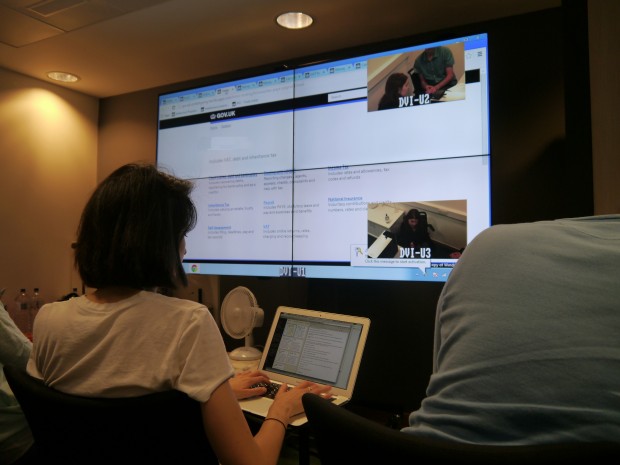This is a post about an encounter with a service user that I wanted to share. For me, the meeting was a timely reminder of what working with departments on the transformation programme is all about.
I’m lucky enough to work as a Transformation Manager on the Redundancy payments exemplar, a service which will help individuals facing the challenge of redundancy. Transformation Manager is an odd job title and from the outside it can seem like an odd job. I am part of GDS, but I work alongside a team within a government department building digital services, providing them with advice and supporting them in their success. As a ‘delivery’ person at heart, it is sometimes hard for me to be helping from the sidelines. Then days like this happen...
We were carrying out user research on mock-ups of our service. Nothing unusual there, we do it every fortnight. We’re working on a digital service which will replace an existing paper based service. We do a lot of research with users who have already been through the process. Most have found the paper process difficult and we’re often told that the digital service is ‘easier’, which is great to hear but sometimes it’s good learn what this really means for users.
On this occasion we had recruited users who were likely to have ‘assisted digital’ needs. They are part of the 18% of the UK population who aren’t online, for a variety of reasons. For those users, a variety of ‘assisted digital’ options will be available, to help them use the digital service.
One woman came in who had a miserable experience using the paper based service, for a variety of reasons it wouldn’t be appropriate to disclose. What was important was that she had never used a computer. Never. She thought she might go to a Citizens Advice Bureau office or a library to get on a computer, although her daughter could use one.
We cheated just a little. Our researcher opened the browser and told her how to use a mouse. That was all the help she needed and she simply proceeded through the digital application process. The service has been designed to be easy to use but it would be smug of us to claim full credit for this woman’s success. In reality, the user was empowered complete the claim and what made my day was that she obviously felt a huge sense of achievement in doing so. And so she should have. I think she will be much more likely to use a computer again. This woman helped us with our user research, and gained the confidence to use a computer. She is currently out of work but who knows where this accomplishment might lead her. Part of me would love to know.
There’s still a lot of work to do. We saw that the woman would still have struggled getting the various bits of information she needed to tell us, whether it’s a paper based or digital service. She might face different difficulties when we integrate identity assurance. There are still many challenges to overcome and the team and I think about these daily as the project moves forward. However, this round of user testing reminded me that I am lucky to be doing this job and to be working with a team who are solving problems to change public services for the better. I’m excited to think that building a simpler and clearer redundancy payments service might even encourage users who may otherwise need assisted digital support to take that leap of faith and get online.

1 comment
Comment by Mary Martin posted on
Great story - thanks Jane. Made my day too.